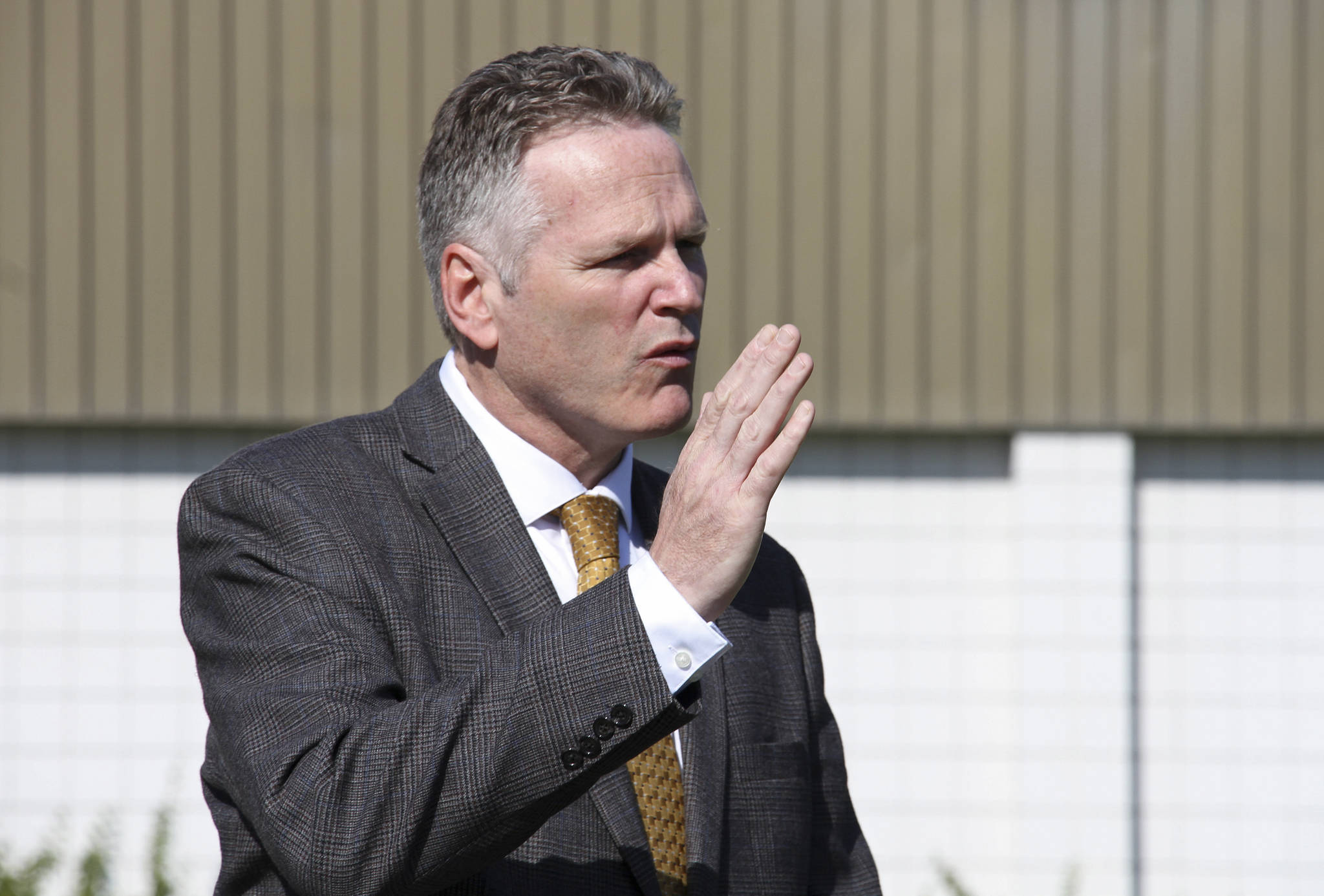“Our constitution requires an annual budgeting process, period.”
That succinct statement by Attorney General Kevin Clarkson is the defense in a funding dispute between Gov. Mike Dunleavy and the Legislature. It involves $30 million of FY 2020 education money appropriated in this year’s budget. Forward funding, Dunleavy has argued, interferes with his line item veto power.
But don’t be fooled. The power grab is really his. In the name of making government less expensive and more efficient, it’s one of the ways he’s compounding the problem by interfering with people trying to do their job.
We ought to be wary every time politicians act like they’re defending the constitution. It’s often discarded when it doesn’t suit their ideological agenda.
Such is the case with the residency requirements in Dunleavy’s proposal to pay out the portion of the Permanent Fund Dividend that was reduced the past three years. And his failure to fill a vacant Superior Court seat within the 45-day deadline defined in the constitution.
Related to the question of forward funding was Dunleavy’s proposal in January to cut $20 million in education from the current year budget. He had a constitutional duty to allocate those funds to the districts, and should have done so in a timely manner. Instead, the attempt to pull it back created uncertainty for managers across the state.
That’s largely what lawmakers were trying to prevent by forward funding part of the education budget for FY 2020.
These disputes aren’t about the constitution, or improving government. It’s about Dunleavy wanting absolute control of the budget so he can cut it to the bone.
That’s the primary objective behind his administrative order establishing statewide consolidation of procurement personnel and functions. The stated one is to eliminate redundancies in purchases, improve the implementation of best practices, streamline procurement enforcing policies and improve efficiencies. Like all efforts to reform government, staff reduction is touted as one the anticipated benefits.
This isn’t a novel concept. Starting in 2005, it was supposed to help solve the procurement problems at the Department of Homeland Security (DHS). How bad was it? According to the Journalism Initiative of the Carnegie and Knight Foundations, DHS’s “reputation for procurement incompetence became so established that even contracts that were handled effectively were routinely cited as examples of mismanagement.”
A major contributor to the DHS failures was Vice-President Al Gore’s “Reinvent Government” initiative in 1993. It was supposed to make “the entire federal government less expensive.” Many of the procurement reforms it identified were signed into law in the Federal Acquisition Streamlining Act of 1994 and Federal Acquisition Reform Act of 1995.
Decentralization was the driving philosophy behind Gore’s plan. Delegating authority and responsibility to lower-level employees was supposed to eliminate micromanagement and put decision makers closer to their work. But spreading out the workforce wasn’t compatible with staffing reductions that were also implemented to reduce the overall size of government. And it proved to one of the primary culprits for the procurement mess at DHS.
That ought to be a warning to Dunleavy that consolidation isn’t as simple as it sounds. DHS had to staff up, not down, to fix the problem.
But the story doesn’t end there.
“Congressional watchdogs continue to find failures in how DHS spends billions of taxpayer dollars on its major acquisition purchases,” Rep. Scott Perry, R-Pennsylvania, said 10 years after the department began consolidating its procurement activities. So here we go again. He introduced the “DHS Acquisition Accountability and Efficiency Act” in 2015.
Sooner or later, a new governor will conclude Dunleavy’s consolidated procurement approach isn’t working well enough. Instead of doing real work, government managers will be directed to spend an enormous amount of money churning out new studies and reorganization plans that in the long run accomplish little or nothing at all.
That’s a form of government waste that needs no further explanation.
The moral here is that some level of government inefficiency is inherently part of all governmental functions. Selectively adhering to the constitution won’t change that. Neither will the obsession with downsizing, rightsizing and otherwise reforming it with directions from the top. The problem is less about the people doing their jobs than the ivory tower politicians telling them how it should be done.
• Rich Moniak is a Juneau resident and retired civil engineer with more than 25 years of experience working in the public sector. He contributes a weekly “My Turn” to the Juneau Empire. My Turns and Letters to the Editor represent the view of the author, not the view of the Juneau Empire.

